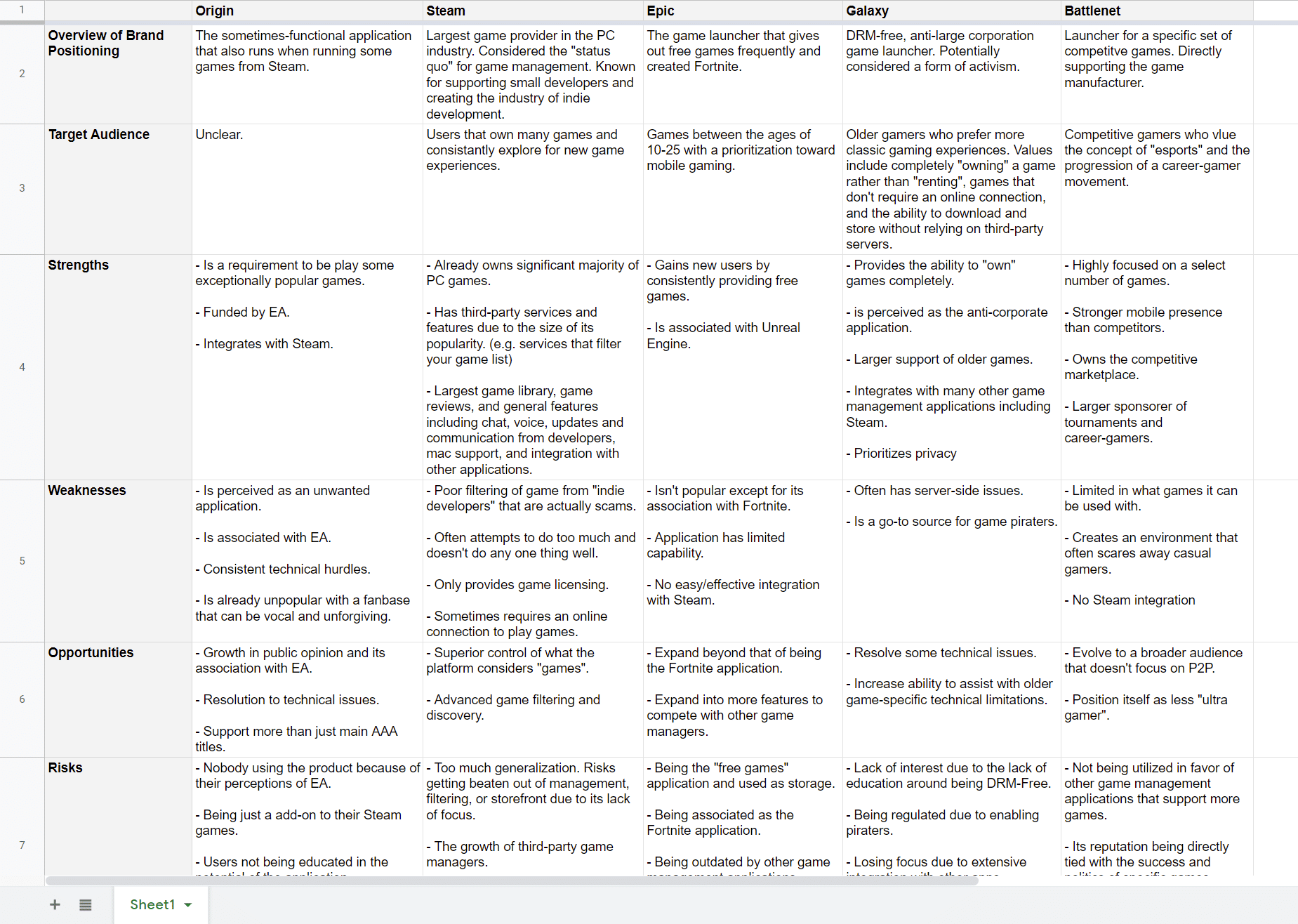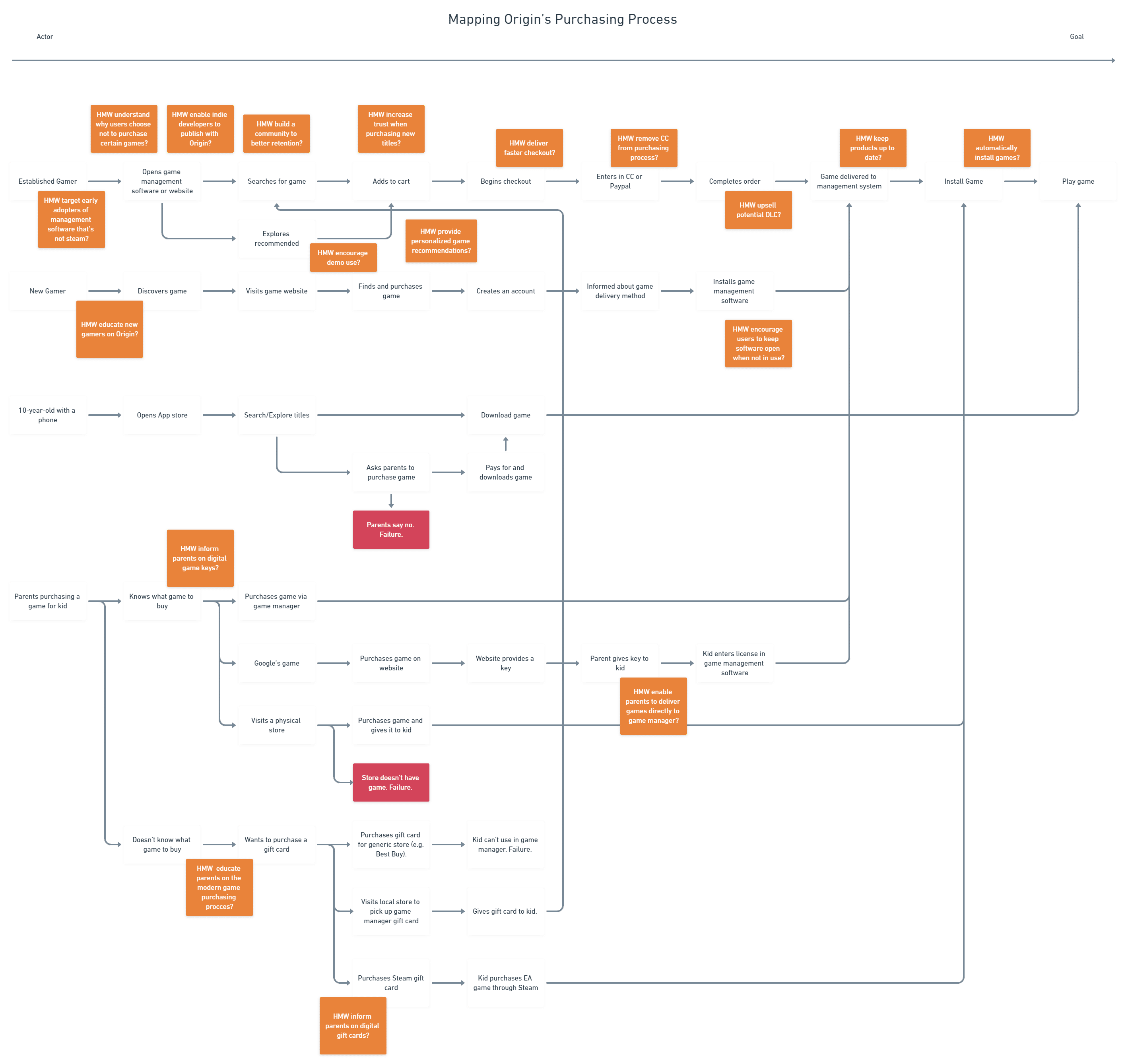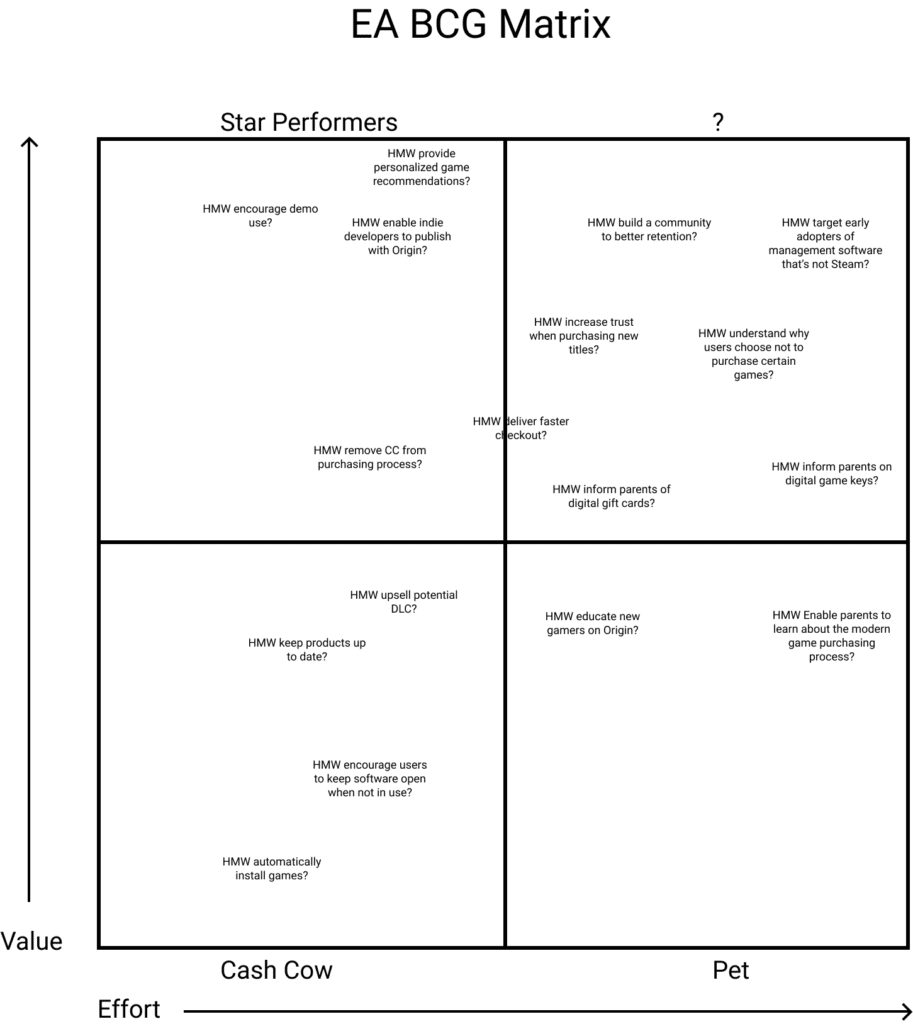EA Demo
What Nate’s process at EA might look like
Hello, Zack, Jono, and Joey!
Going into interview three, I wanted to prep what a UX design process might look like and demonstrate some diversity from my other case study within the navigation menu. I was told I was going to have a third interview last night so what you’re seeing has been rapidly put together this morning (Wednesday). The goal is to demonstrate a high-level overview of a process and focus on width, not depth. There were many assumptions made along the way but hopefully this demonstrates what being my co-worker might look like.
The Problem
Origin is being out-innovated by other game management software like Steam, Epic, Galaxy, and Battlenet and is slowly losing customers to competing brands.
The Solution
Origin has an opportunity to grow in many different directions including enhancing its list of features, integration with other software, ease of use when purchasing new games, and building an environment that thrives on community and connecting people.
Presently, Origin has the perception of being the application that one is forced to download when running specific games from Steam. Users don’t find benefit in Origin, it’s “just another game management” application.
Based on the competitive analysis, one potential direction to differentiate Origin from other software is the ability to discover and play demos of games they wouldn’t normally try. While other software enables users to install demos, none of the software easily enables the discovery of what demos are available.
By allowing users to be more informed of what demos are currently available and which of them are relevant to their interests, we can increase observability of particularly titles and increase desire and demand of purchasing those titles.
Competitive Analysis
A competitive analysis was created to better understand where Origin is within the marketplace and its differentiators.
View the full analysis in Google sheets.
How Might We
How Might We’s (HMWs) were created based on the competitive analysis and which directions we could tackle the problem.
- HMW Enable parents to learn about the modern game purchasing process?
- HMW educate new gamers on Origin?
- HMW inform parents on digital game keys?
- HMW enable parents to deliver games directly to game managers?
- HMW inform parents of digital gift cards?
- HMW deliver faster checkout?
- HMW target early adopters of management software that’s not Steam?
- HMW build a community to better retention?
- HMW enable indie developers to publish with Origin?
- HMW increase trust when purchasing new titles?
- HMW provide personalized game recommendations?
- HMW remove CC from purchasing process?
- HMW upsell potential DLC?
- HMW keep products up to date?
- HMW automatically install games?
- HMW encourage demo use?
- HMW encourage users to keep software open when not in use?
- HMW understand why users choose not to purchase certain games?
Mapping
A map of Origin’s game purchasing process was made to better understand who is using the process and how the process changes depending on the user. HMWs were then placed on the map in relevant areas within the process.
The full-size image can be seen on Whimsical.
BCG Matrix
As an additional step to mapping, all HMW statements were placed within a BCG matrix as a method of prioritization. Based on the results, we can see that “HMW encourage demo use” provides one of the higher values with less effort.
The full-size BCG Matrix can be found on Figma.
Focusing the Sprint
Based on the map and the BCG Matrix, I then chose a target that we could design, develop, and iterate within a sprint cycle. While this process is typically discussed with a team, for sake of this process, I chose to focus on encouraging the use of demos.
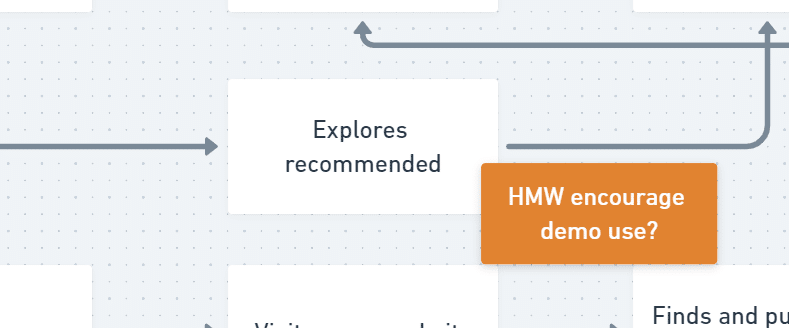
Idea Iteration
While focusing on encouraging demo use, I began writing down all the potential directions and solutions one could build.
- Add demos to Game Library page
- Add demo page to left-menu navigation
- Weekly demo club (like a book club)
- Auto-install demos
- Provide achievements that are only accessible via demos
- “Install Random Demo” button
- Package demos with other game purchases
- Include demos in Free-To-Play sections of the store
- Enable ability to watch somebody else playing
- Include non-purchased DLC within games as timed benefits
- Build reward system for trying demos. Points? Achievements?
- Blind demo based on tags/interests
Crazy 8’s
Following the idea iteration, I took the top eight ideas and rapidly sketched what those solutions could potentially look like.
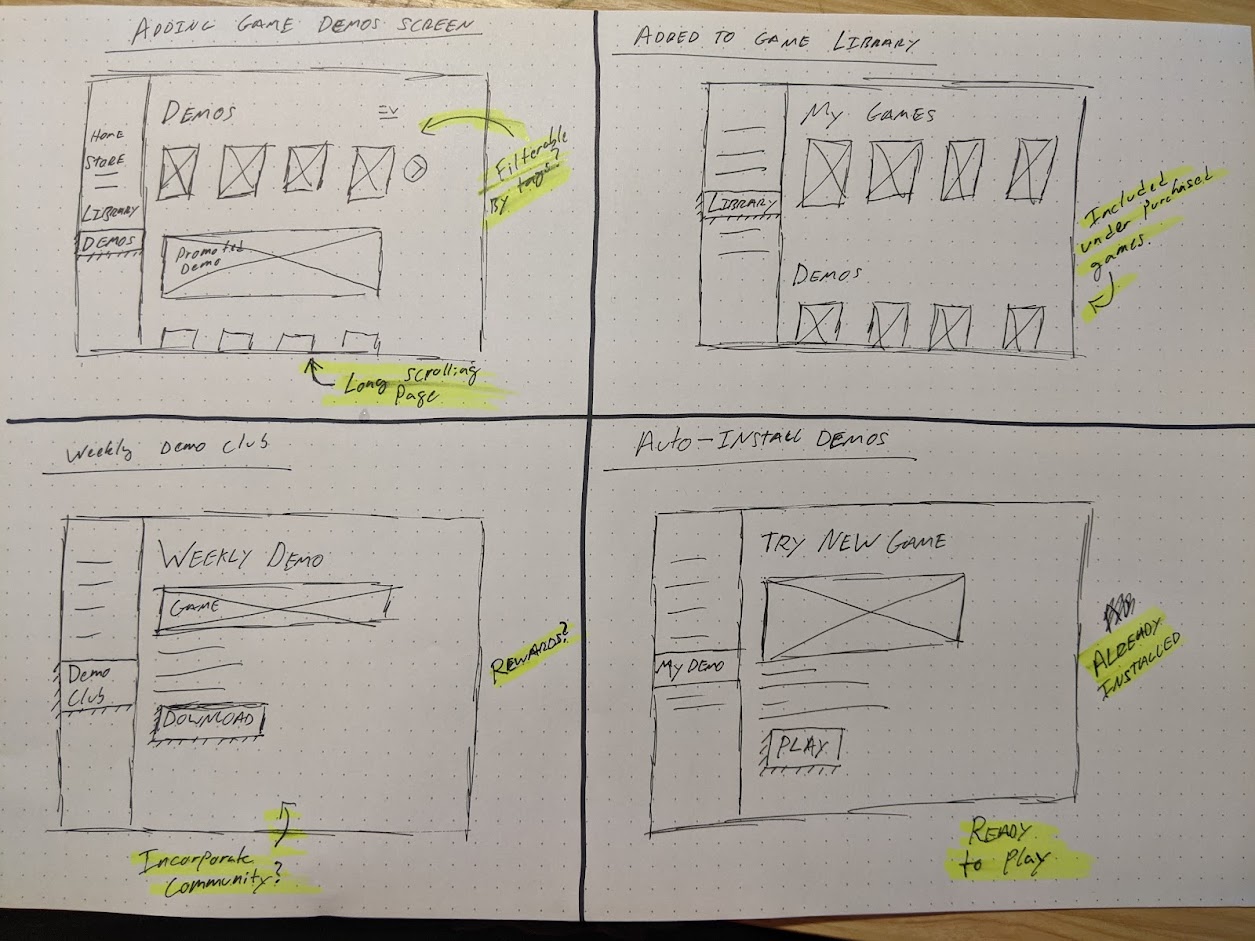
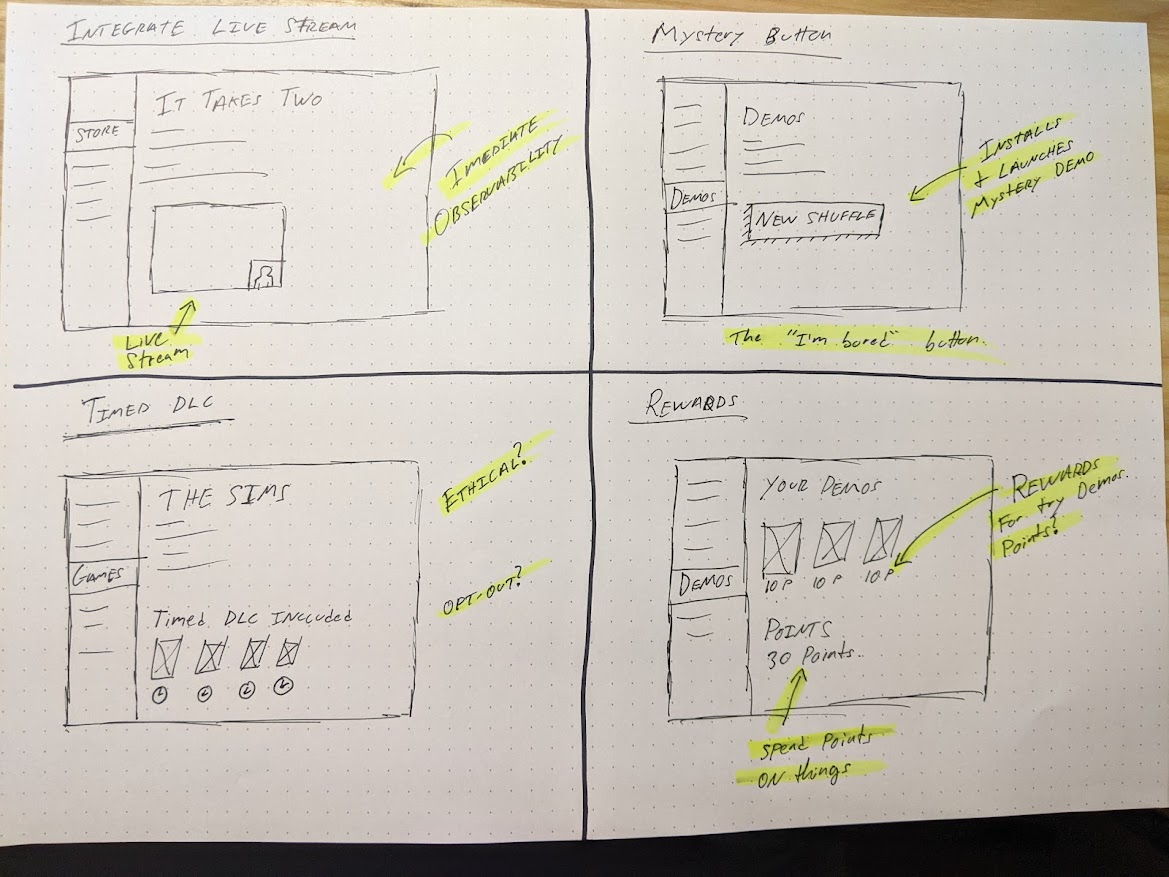
Choosing and Refining
Of the eight potential directions, I found most interest in providing the ability for automatically installing game demos due to a number of benefits:
- Providers a differentiator to other brands
- Increases discoverability of new products
- Requires no additional interaction from the user (other than playing the game)
- Can be easily implemented and tested
Moving forward, I chose to sketch this feature in with more detail to expand what this direction might look like and how it would work.
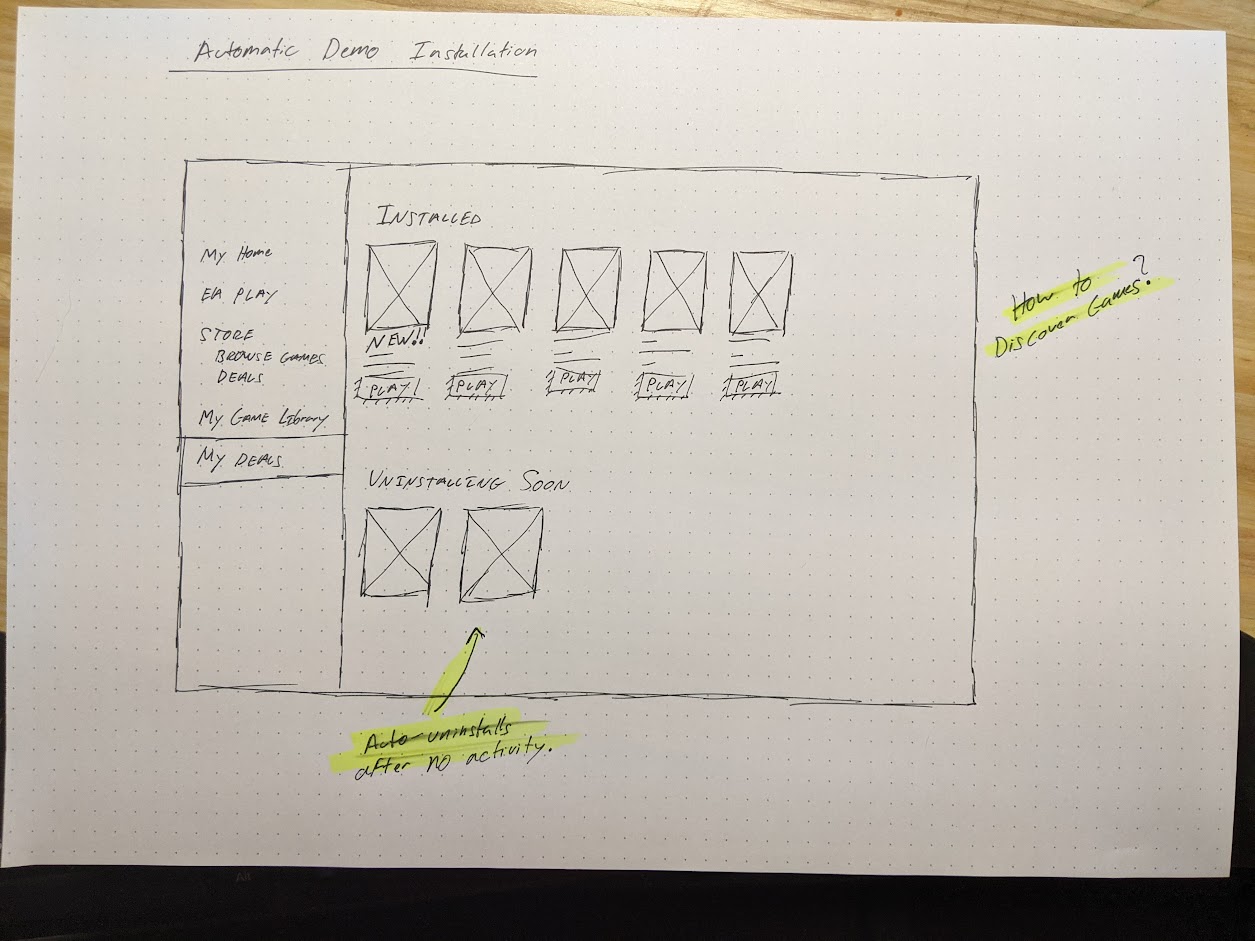
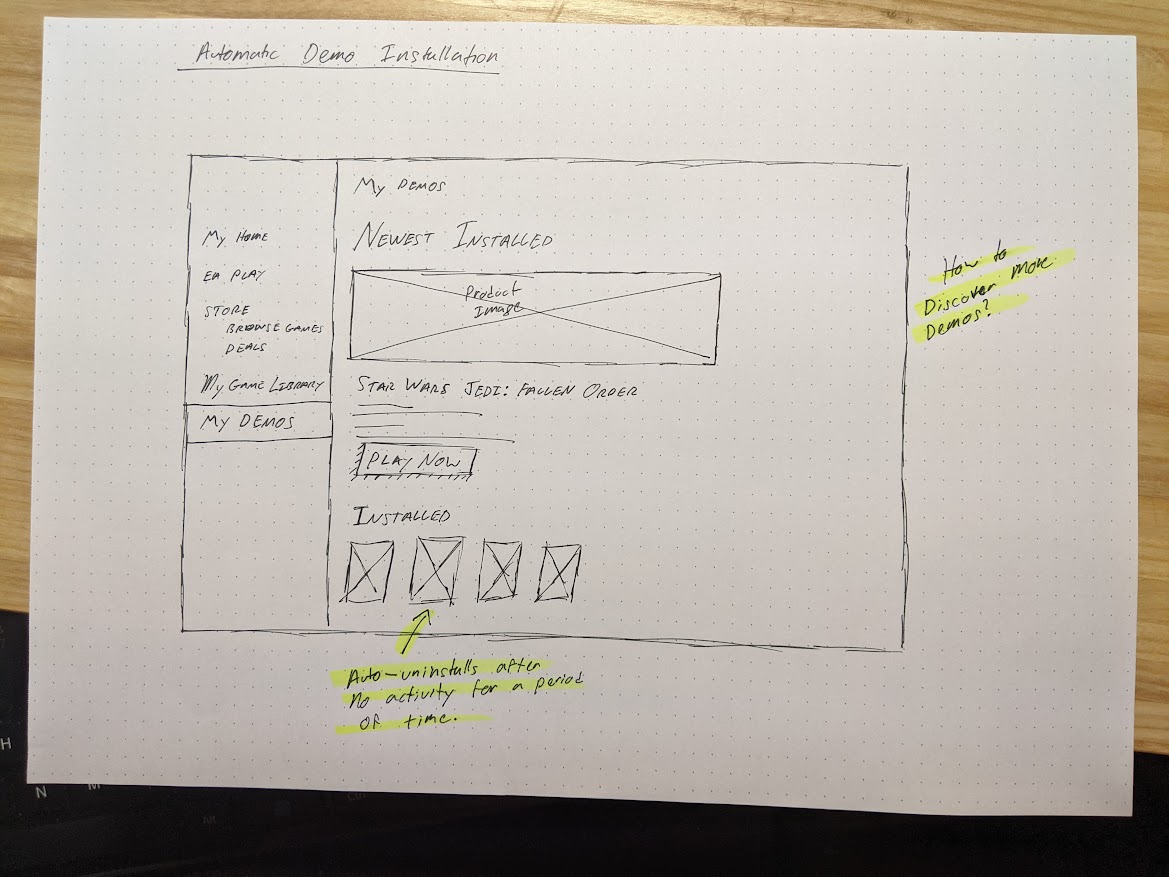
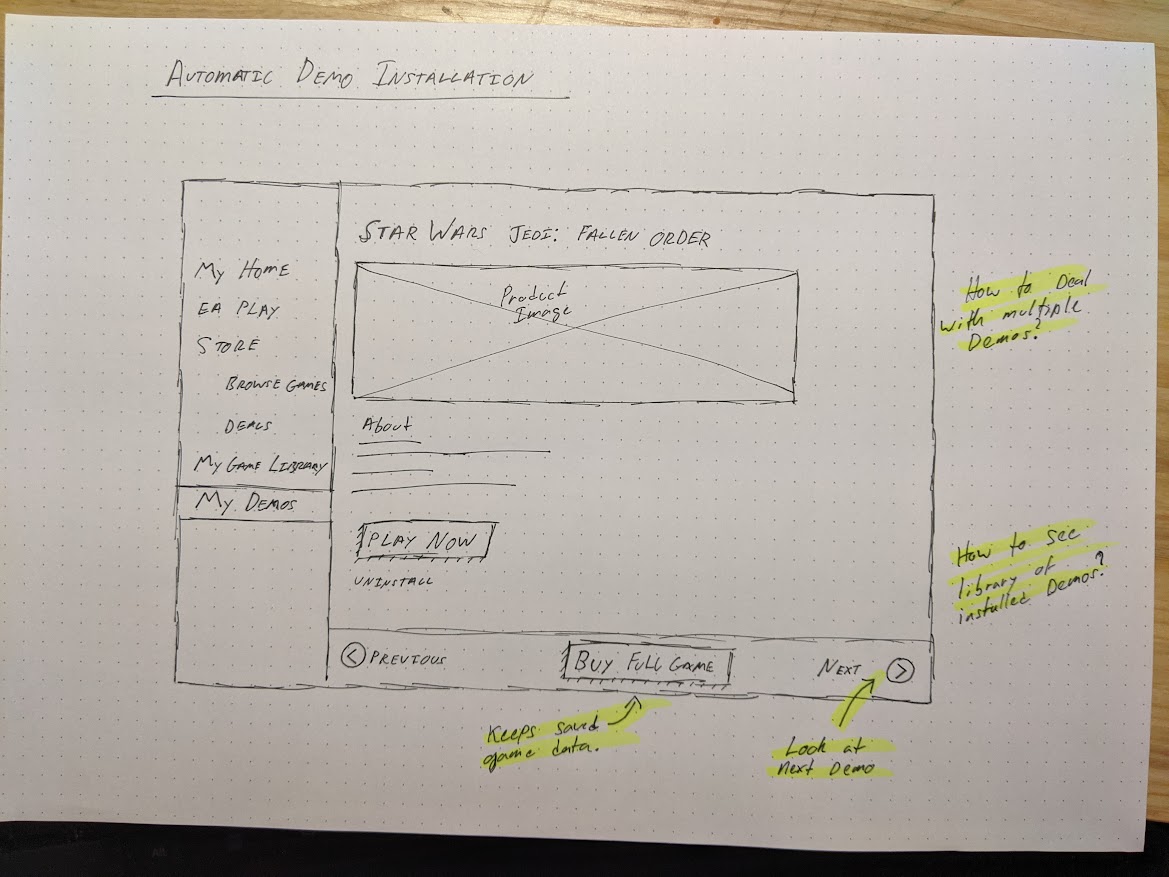
Out of time! Next Steps…
It is now 12:53pm and I am out of time! To quote the philosophy of Winnie The Pooh, there’s a rumbly in my tumbly and I need to get some food.
Moving forward, the next step would be narrowing down a solution and creating a storyboard demonstrating how that process is used in its entirety. After the storyboard is created, a low-fidelity prototype can created and tested with users to validate the effectiveness of the product. If testing goes well, high-fidelity prototypes are created, re-tested, and eventually moved into development.

